Do I go with BMW or Mercedes-Benz? The answer to this isn’t so black and white on the surface. Over the years, both Mercedes vs BMW have appealed to different fanbases and built up an ardent following. Depending on who you talk to, you’ll receive different answers.
Folks always mention that if you want a luxury automobile, always buy German. It’s an overly succinct answer that leaves people with more questions. However, it’s fair to say that contemporary German cars deserve plaudits for maintaining such a high standard of automotive luxury.
Follow this article to help you decide which car manufacturer best suits you, BMW vs Mercedes. In this guide, we’ll be comparing BMW vs Mercedes in numerous factors. This includes looking at their reliability, as well as servicing, maintenance, running, and repair costs.
On top of that, our guide here will look at their insurance rates, and even what safety features each brand offers. Aside from that, we’ll then look at the design and build quality of cars from each brand. This then segues us into discussing their driving experiences, and we’ll even add Audi into the mix.
Mercedes vs BMW
When you fork out the premium for a modern German luxury car, you’d have reasonably high expectations. That said, when you go German, you’re certainly not starved for choices. Unless you want something more left-field, in which our guide on Lexus vs Mercedes might help make things clear.
Given that some of the world’s biggest car manufacturers are mostly German, there’s an eclectic range of German cars to peruse from.
Nevertheless, when it comes to the topic of German luxury, two marques in particular pop into mind – BMW and Mercedes-Benz. Both of them are archetypal of German quality and are bywords for German luxury and engineering in their own rights.
Regardless, this leaves you pondering to yourself whether to go for the former or the latter. Here is an overview of one of the most enduring automotive rivalries that have helped advance automotive engineering in the past century.
BMW Vs Mercedes Models
BMW vs Mercedes being some of the largest automotive manufacturers in the world both produce a broad range of cars that are developed to appease a diverse range of consumers. In fact, it might be fair to say that there’s no market that both automakers haven’t encroached upon.
In fact, to this date, both BMW vs Mercedes have delved into some properly niche market segments. Most notable of late is their respective ventures into the world of electrification.
Both marques have introduced hybrid and full EVs aplenty, as BMW and Mercedes-Benz have already pushed out hybrid variants of their bestsellers ages ago. This proves that both brands willingly progress for the inevitable EV age.
Some of BMW’s strangest, quirkiest creations come from their electric lineup, the i-series of cars. Touting the ethos of sustained mobility, BMW’s all-electric lineup is forward-thinking.
When you consider that the original BMW i3 came out all the way back in 2013. This is back when full-EV cars were still in their infancy as the technology and infrastructure, in general, were largely conceptual.
It’s not all bleak, monotonous electric and hybrids it makes though. BMW also produces the i8, one of the first commercially available small-engine hybrid sportscars. Recently, it has also brought back the 8 Series moniker, in the form of the stupendous new ‘G14/G15/G16’ 8 Series.
Of course, BMW is also an artisan in the classic longitudinal, rear-wheel-drive layout of cars. It has stuck with the concept ever since its inception. Until recently, it was one of the last manufacturers to produce a front-engine, rear-wheel-drive hatchback – the F20/F21 1 Series.
Some argue that the inline-6 1-series is the last great driver’s hatch to be produced in modern times.
Undoubtedly, BMW owns one of the most venerable letters in the world – ‘M’. Being BMW’s revered performance division, when the M letter is emblazoned on a BMW you know it’s got to be something spectacular.
It’s not all about tire-smoking prowess though, as BMW also produces normal front-engine front-wheel-drive cars for the masses. Initially met with vexation from BMW enthusiasts, it’s apparent that the popular 2 Series, X1, and X2s are a necessary step for BMW.
Then there’s the usual lineup of BMW cars, from the compact executive 3 Series to the full-fat 7 Series luxobarge. Multiple engines are also available for each model, depending on where you live. For the extra-affluent, BMW also has Rolls-Royce for its ultra-luxurious lineup.
On the other hand, Mercedes-Benz is slower to the curve when it comes to full EVs, but it has recently brought out major developments in the form of EQ mobility. In fact, it’s working towards electrifying all of its cars and propagating mild-hybrid technology throughout its range.
It has also recently introduced full EVs such as the EQC and EQV, with many more Mercedes EQ models in the pipeline.
Over the years, Mercedes has really diversified its range of cars. And let’s not downplay their contribution to the commercial world, as BMW, in contrast, has no commercial vehicle presence at all.
Mercedes-Benz also has its own skunkworks in the form of AMG. Over the years, much like the M-division, AMG has graced the world with some properly manic concoctions, such as the CLK DTM AMG, R129 SL73 AMG, SLS AMG, and the list spans endlessly.
Most recently AMG’s efforts have culminated in their magnum opus, the Mercedes-AMG One, an F1-road car hybrid from the madman’s fantasy.
Mercedes’s normal lineup of cars is encompassing. From the A-Class family hatch all the way to the S-Class luxury sedan. Although recently streamlined, you can still buy multiple variations of a certain model, with availability subject to regional differences. For ultra-luxury, you’d be looking at Mercedes-Maybach models.
Therefore, both companies are rather even when it comes to the cars they produce. While Mercedes-Benz makes the X-Class pickup, although that’s been discontinued. That said, Mercedes-Benz is at the forefront when it comes to commercial vehicle production, and that’s really a segment BMW hasn’t explored at all.
BMW vs Mercedes – Reliability
This is a hot topic whenever there’s a discussion between BMW, Mercedes-Benz, and even other German brands like Audi and Volkswagen – vehicle reliability, or lack thereof. Some still wonder about are BMW reliable cars (and among the list of the most reliable cars).
Whenever you mention German luxury, people will disclose their own tales of woe from owning a German car. Certainly, there are examples of German cars breaking down the moment it leaves the showroom. However, the same story can be told about Japanese or even American luxury cars.
The truth is that when you’re investing in the notion of utmost luxury, you are demanding complications and experimental engineering that’s not industrially applied yet. Manufacturers dedicate unfathomable time and resources to development to implement the hottest technology available into their cars.
To be competitive in the field of luxury cars, you have to offer novelties and features lacking anywhere else. This has brought luxury manufacturers to widely incorporate vehicle networking which increases the number of sensitive electronics found in a modern car.
More links in the chain mean there are more to fail. It gives the impression that luxury cars break down more often and sooner. The benefit is that these breakthrough technologies eventually trickle down into the basic models, then become widespread among manufacturers.
This is immediately apparent when you take a look at reliability ratings, where BMW and Mercedes-Benz hover just around the industry average. With that said, in JD Power’s 2022 Vehicle Dependability Survey, BMW is clearly ahead of Mercedes-Benz.
If you take a look at another survey done by WhatCar, Mercedes-Benz is also behind BMW. Both makes are more or less on par with each other. It’s inconclusive but fair to say that both manufacturers perform comparably when it comes to reliability.
The honest truth is that if you’re getting into a Mercedes-Benz or BMW, you’re expected to be able to keep up with the hefty maintenance cost (same as Audi cars) and occasional demand for workshop attention. There will be work that can only be conducted by specialists, and they charge more for their work.
Mercedes-Benz and BMW were the benchmarks for reliability half a century ago. Over time though, consumer demands for higher standards of technology and luxury have rendered this reputation impertinent. The progression of the most reliable BMW engine makes this clear enough.
A reasonable conjecture can be understood here then, if you’re after reliability, look elsewhere. Both manufacturers struggle to score favorably in most brand reliability surveys, even the most reliable BMW can’t fare all too well. The same goes for the most reliable Mercedes models, which still fall flat compared to some other brands.
Playing devil’s advocate, it’s worth noting that in JD Power’s 2022 Customer Service Index (CSI) study, BMW beats out Mercedes once again. This is in the Premium Brand segment, with Lexus taking the lead. As such, there’s no question as to whether or not is Lexus a luxury car brand.
We have looked into what is the most reliable German car. Read our full article on it.
BMW Maintenance Cost
When considering luxury vehicles like a BMW, potential buyers often mull over performance, comfort, and prestige. However, another critical factor to weigh is the cost of maintenance and repairs. Owning a luxury vehicle means luxury-level care, which often comes with a higher price tag. Let’s delve into what BMW ownership might look like from a financial perspective.
One major expenditure for BMW owners is routine maintenance. Like all vehicles, BMWs require regular services to keep them running smoothly. However, these costs can be higher than what you’d pay for a non-luxury brand.
On average, BMW owners spend between $150 and $400 per service, usually scheduled every 10,000 miles. As per the data provided by RepairPal, the annual cost for BMW maintenance hovers around $968. Here are a few typical services and their average prices:
- Oil Change: $149 to $174
- Engine Filter: $88 to $116
- Spark Plugs: $144 to $295
- Wheel Hub Assembly Replacement: $235 to $595
Additionally, if you frequently drive your BMW hard or use the turbo often, you can expect additional items that need fixing, which will add to your maintenance costs.
1. BMW Repair Costs
Beyond routine servicing, BMWs may require occasional repairs, and these can significantly impact your budget.
According to data from RepairPal, BMW owners can expect to pay between $1,000 to $1,700 per year on repairs, which is higher than most brands. As your vehicle ages and parts wear down, repair costs tend to increase. For example, a Turbocharger Assembly replacement can range from $2,328 to $2,481.
2. BMW Extended Warranty and Ultimate Care Plan
In response to these high costs, BMW offers options such as extended warranties and the Ultimate Care Plan. The Ultimate Care Plan covers routine maintenance items such as oil changes, brake fluid, engine filters, and more. However, it only applies to the original owner and specific model years.
Alternatively, a BMW extended warranty can cover expensive parts more likely to fail over time. This can be particularly useful once your car’s initial warranty period expires, often after four years or 50,000 miles.
3. Model-Specific Costs
Different BMW models can have varied maintenance and repair costs. For instance, an M4, as a high-performance model, tends to have higher costs compared to the 3 Series or 5 Series. Be sure to factor in these differences when choosing your BMW model.
4. BMW vs. Other Brands
When comparing BMW to other brands, the cost difference becomes more evident. For instance, the annual maintenance cost for a BMW ($968) is significantly higher than for a Nissan ($500) or Lexus ($551). This shows that while BMW offers a premium driving experience, it also comes with a premium price tag.
5. Is BMW Right For You?
Owning a BMW can be an exhilarating experience, but it’s crucial to consider the ongoing costs of maintenance and repairs. The initial price of your luxury vehicle is just the beginning. Ensuring your car remains in top condition requires a significant ongoing investment, so consider this carefully before deciding to become a BMW owner.
Remember, while high performance and luxury features make BMWs attractive, they also contribute to higher service and repair costs. An extended warranty or maintenance plan can help manage these expenses, but it’s still essential to budget for them.
If you value the unique driving experience a BMW offers and are willing to maintain it properly, a BMW might be a great choice for you. However, if the potential costs seem too high, other luxury brands or even premium non-luxury brands may be a better fit for your budget.
Mercedes Maintenance Cost
It’s a well-known fact that owning a Mercedes comes with a significant commitment in terms of maintenance costs. Positioned second in terms of expenditure on maintenance after BMW, a Mercedes owner pays approximately $908 annually for repair and maintenance, as suggested by RepairPal.com.
1. Mercedes Prepaid Maintenance Plans
Although Mercedes does not offer free maintenance as BMW does, they provide prepaid maintenance programs, covering services up to 110,000 miles. Mercedes declares that opting for a prepaid plan could save up to 30% on dealership maintenance. The price of these plans is not public, thus one has to contact a dealer for cost-related queries. The available plans are:
- Up to 1 year/10,000 miles: 2, 3, or 4 years
- Up to 8 years/80,000 miles: 2 or 3 years
Note that prepaid maintenance plans cannot be purchased for a brand-new car that would cover the next ten years or 110,000 miles. Once one plan ends, another can be purchased if the car is eligible. The decision to buy dealer-backed prepaid maintenance rests with the owner, as there might be non-dealer European auto shops offering similar services for less.
2. General Mercedes-Benz Maintenance Cost
Keeping up with regular maintenance is essential, especially for a Mercedes. Ignoring scheduled services could lead to expensive repairs in the future. Two types of scheduled services exist for Mercedes-Benz vehicles: Service A and Service B.
Service A is due after the first 10,000 miles and includes an oil change, oil filter replacement, brake inspection, tire pressure check, and fluid level check and correction.
Service B is due after the first 20,000 miles and includes all Service A tasks plus additional jobs like changing the air filter and brake fluid. As the car ages, the car’s computer will suggest other maintenance services.
Here are some maintenance costs associated with Mercedes:
- Service A: Starting at $250
- Service B: Ranging from $595 to $933
- Oil change: Between $164 to $184
- Tire rotation: From $99 to $125
It’s important to remember that these costs can vary depending on the model.
3. Five-Year Mercedes Maintenance Costs
Maintenance costs also vary over a five-year period and are dependent on the model year. Here’s a comparison between the 2021 and 2015 model-year vehicles of a few Mercedes-Benz models:
- 2021 Mercedes-Benz C300 sedan 2.0L: $7,078
- 2015 Mercedes-Benz C300 sedan 2.0L: $9,197
- 2021 Mercedes-Benz AMG C 63 coupe: $9,238
- 2015 Mercedes-Benz AMG C 63 coupe: $19,831
Clearly, the older the model, the higher the cost of maintenance.
4. Common Mercedes-Benz Repair Costs
In addition to scheduled maintenance, there are repair costs for parts replacements. A few common Mercedes-Benz repair costs are:
- Water pump replacement for C240: $779 to $866
- Wheel hub replacement for SLK350: $257 to $292
- Brake pad replacement for SLK55 AMG: $338 to $368
- Hybrid battery cable replacement for ML450: $295 to $356
- Replace spark plugs for C320: $360 to $487
5. Comparing Mercedes Models
Below are some Mercedes models and their annual repair costs:
- Mercedes-Benz C350: $724
- Mercedes-Benz E350: $788
- Mercedes-Benz GLK350: $859
- Mercedes-Benz ML350: $1,020
- Mercedes-Benz S550: $1,249
- Mercedes-Benz S63 AMG: $1,581
6. Comparing Mercedes-Benz Maintenance Cost To Other Brands
Here’s how Mercedes stacks up against other car brands in terms of annual maintenance and repair costs:
- Lexus: $551
- Chrysler: $608
- Infiniti: $638
- Mercedes: $908
- BMW: $968
- Audi: $987
7. How Do Extended Warranties Help With Cost?
Extended car warranties can mitigate some of the financial burdens of owning a Mercedes. While they don’t cover scheduled Mercedes maintenance costs, they can be beneficial when there’s a breakdown. These service plans cover mechanical failures occurring during regular usage. As vehicles age beyond factory warranty limits, repairing certain parts can become incredibly costly.
An extended warranty can aid in budget management and keep your out-of-pocket costs low. Even if you can afford the repairs, managing these unexpected costs can be a hassle that an extended warranty can help to mitigate.
Owning a Mercedes-Benz is a luxury, but it’s essential to factor in the total cost of ownership, including maintenance and repair costs, when making the purchase decision.
Audi Maintenance Cost
In the realm of luxury vehicles, Audi ranks prominently. Synonymous with elegance and superior performance, the brand undoubtedly piques the interest of many car enthusiasts. However, like every luxury brand, maintaining an Audi requires a certain level of commitment in terms of service and maintenance.
Here we delve into the details of the Audi maintenance schedule and the associated costs.
1. Understanding Audi’s Maintenance Schedule
As per the manufacturer’s recommendations, all Audi vehicles should receive minor and standard maintenance services at intervals of 10,000 and 20,000 miles respectively. While the cost of a minor service hovers between $112 and $113, a standard service may be a tad pricier, costing somewhere between $460 and $612, according to RepairPal.
Beyond these scheduled maintenance services, there’s an array of other costs to consider to ensure your Audi stays in top-notch condition. RepairPal data suggests the average yearly expenditure for maintaining and repairing Audi vehicles totals $987.
Here’s a glimpse at the standard Audi maintenance schedule for a model like the Audi Q5:
- Every 10,000 miles: Minor maintenance service, which includes engine oil and oil filter replacements, brake pad check, multi-point inspection, and service reminder displace reset.
- Every 20,000 miles: Standard maintenance service featuring chassis inspection, brake system inspection, fluid level check, door hinge lubrication, engine inspection, and so forth.
- Every 2 years or 20,000 miles: Replacement of dust and pollen filter.
- Every 2 years: Change of brake fluid.
- Every 40,000 miles: Spark plug replacement and change of S tronic transmission fluid.
- Every 60,000 miles: Air filter replacement.
2. Cost Estimates for Audi Maintenance Services
The below estimates from RepairPal provide an idea about the likely expenses for each service interval:
- 10,000-mile service: Ranges from $118 to $139.
- 20,000-mile service: Around $456 to $606.
- 30,000-mile service: Approximately $118 to $139.
- 40,000-mile service: Somewhere between $707 to $909.
- 50,000-mile service: Generally, $118 to $139.
- 60,000-mile service: About $504 to $677.
3. The Perks of Prepaying Your Audi Maintenance Costs
Audi Care is an offering from the Audi dealership that lets you prepay for your vehicle’s maintenance. The plan assures the deployment of expert technicians and authentic Audi parts for any replacement. By mitigating the impact of inflation, the prepaid plan could prove cost-effective over time.
You can select from a range of maintenance intervals starting from 10,000 miles up to 80,000 miles, with costs likely ranging between $800 to $1300. However, these contracts are non-transferable and non-cancelable.
4. Evaluating Audi’s Reliability
Beyond regular upkeep, you should also anticipate unforeseen breakdowns while budgeting for your Audi. RepairPal’s reliability rating for Audi vehicles stands at 3.0 out of 5.0, ranking the automaker 28th out of 32 brands evaluated.
For a comprehensive understanding, here’s a breakdown:
- Average Annual Repair Cost: $987
- Frequency of Repairs: 0.8 times per year
- Probability of Needed Repair Being Severe: 13 percent
While the above costs include regular maintenance services, mechanical breakdown repairs are not included. These can add a significant amount to your annual Audi maintenance costs.
5. Tackling Unexpected Repairs with Audi Extended Warranty
While a prepaid maintenance plan covers regular upkeep, it won’t shield you from unanticipated breakdowns. Post the expiration of the 4-year/50,000-mile bumper-to-bumper warranty that new Audi vehicles come with, you might consider procuring an extended warranty for continued protection.
While Audi dealerships offer extended warranties that prolong bumper-to-bumper coverage up to 10 years and 120,000 miles, third-party warranties are also an option. These often come with additional perks like roadside assistance, rental car reimbursement, and the option to purchase at any time.
6. Should You Consider An Audi, Instead?
In summary, owning an Audi means a commitment to regular maintenance and bearing the associated costs. A solid understanding of the Audi maintenance schedule, an idea about the regular costs involved, and options like extended warranties can all play a part in ensuring a smooth ride. As an Audi owner, such information equips you to make the right decisions for your luxury ride.
BMW vs Mercedes – Design And Quality
In terms of design philosophy, both marques adhere to their own ethos. Undoubtedly the overall aesthetics have evolved over the years, but even today we can see the application in modern form. Of course, design ideals change and innovate over the years.
When it comes to BMW, we’ve seen the design alter from the original and timeless ‘Sharknose’ to the modern-day ‘kidney grille‘. It represents BMW’s idea of dynamism and constant motion. The positioning is subtly modified for varying models.
However, there are elements that you might’ve not noticed, yet BMW has stuck with them for decades. Things like the ‘Hofmeister Kink‘, a distinctive counter-curve at the C-pillar. All BMWs also have a crease line that courses through the entire side profile and a muscular aft end.
When it comes to Mercedes-Benz though, a svelte yet imposing design is the motto. Mercedes-Benz dubs its design language ‘Sensual Purity‘, and it denotes its take on modern luxury. What it essentially means is fewer creases, sharp edges, and abrupt lines, all in the pursuit of veritable elegance.
Mercedes-Benz has always been the one who always proudly displays its badge for all to see (fun fact, go check out our explainer on how to debadge a car). However, one model truly epitomizes their notion – the S-Class. Over the years, the S-Class has always been understated, yet somehow exudes incredible road presence.
It’s also enticing to see Mercedes-Benz finally experimenting with its ‘Panamericana’ grille nowadays. This harkens back to the legendary W194 300 SL, Mercedes’s incredibly successful road racer.
Move onto the interior, and both manufacturers won’t disappoint you with the quality. Fit and finish is the name of the game if one wants to remain on top, and lackluster quality isn’t acceptable at this level.
Both BMW and Mercedes-Benz present remarkable interior design and material choices. The W222 S-Class, in particular, presented the world with a new take on interior design.
Introduced all the way back in 2013, it was one of the first car interiors that really made clever use of its construction and ambient lighting to present a theater whenever you opened the doors.
And today, we’ve seen the design slowly adapted into the new W177 A-Class, and in its segment, in terms of design, there really is nothing quite like it. However, when it comes to quality in this ‘budget’ premium sector, the BMW 1-Series outperforms with a better material application.
Come to the E-Class or S-Class though, Mercedes-Benz is exemplary. Everywhere you touch it feels properly built, and the execution deserves plaudits. Of course, BMW’s interiors are worthy of mention too, but Mercedes is truly outstanding when it comes to vehicle interiors.
BMW vs Mercedes – Driving
Both BMW and Mercedes-Benz proudly don their slogan – “The Ultimate Driving Machine” and “The Best or Nothing” respectively. Driving pleasure is clearly reigning amongst the top in terms of priority, and their models show.
When it comes to their basic models, I reckon BMW is superior when it comes to the driving experience. BMW has always been the driver’s car, and it has long been said that the ultimate driver’s sports car is the BMW M3. But then the normal 3 and 5-series got so good that some hesitate to recommend the extra cost of an M car.
Recently, Mercedes-Benz has had a bit of an identity crisis. They were the luxurious choice, but the C-Class feels a bit too sporty to be an entry-level S-Class, and it’s intentional. And while you’re there, maybe even take a look at the Mercedes Benz GLE SUV.
However, come to the normal S-Class or even the E-Class, and it’s still an absolute joy to drive on normal roads. Composed yet suitably potent, if a bit disconnected. That, and the many other Mercedes classes that require one to be explained to.
Both manufacturers have it close with their performance-imbued models. And if not, even the simplest forms of tuning on a BMW M3 can do wonders to extract more power. Courtesy of their performance subdivision, both of them have presented the world with some truly intriguing creations.
The new AMGs are true rocketships, such as the latest Mercedes-AMG A45 S which is actually faster than the BMW M4 around the Nürburgring. Of course, it boasts a mighty turbocharged inline-4 that puts out over 400 horsepower and nigh 500 Nm of torque.
They also produce some properly rapid cars with their signature 4.0-liter twin-turbocharged V8 engine that’s used across the 63 range and GT models. It’s always giggle-inducing to see the C63 S estate, a 4,000 lbs car that accelerates from 0-62 mph in 4.1 seconds.
With all that said, people will rebuke BMW M-division’s excellent résumé. Make no mistake, the folks over at M have churned out plenty of excellent cars over the years, and I’d say that BMW still remains a connoisseur at manufacturing inline-6 engines.
However, BMW still doesn’t have a real answer to the Mercedes-AMG GT lineup of cars, with the M8 being more comparable to the S-Class Coupe. But Mercedes-Benz has long forsaken the manual in the AMG models, and the BMW M2 and M4 can still be found with a manual nowadays. That’s unless you’re looking at the non-M BMW 430i.
BMW vs Mercedes – Insurance And Safety
When it comes to the topic of insurance, there’s no way around it. Both BMW vs Mercedes-Benz performs rather exorbitantly. Car parts for them are expensive (in case you’re still wondering whether are BMW spare parts expensive), and labor charges are high, insurance companies don’t want you to drive one at all, really.
Indeed, across numerous insurance rate comparisons, cars manufactured by BMW vs Mercedes-Benz tend to make the list. That’s with all the other supercars and luxury cars. There’s really no way around it, if you own a German luxury car, expect to spend a lot to insure it.
If there’s any consolation, they are also amongst the safest car you can buy. In the latest Euro NCAP rating, Mercedes-Benz models all score admirably in their tests, with some BMW models also taking the top spots. Regardless, they’re all 5-star Euro NCAP safety ratings.
Both the Mercedes-Benz CLA-Class and BMW 3 Series are the best in their respective class. The latest 3 Series scores 97% for adult occupancy protection and 87% for child protection and road user protection.
The Mercedes-Benz CLA is laudable in how well it performs as a small family car – 96% for adult occupancy safety and 91% for both pedestrian safety and child occupancy protection.
In addition to the deftly thought out design and engineering to make their cars as safe as possible in the event of a collision, both manufacturers also sport copious collision aversion systems.
Mercedes-Benz, in particular, is an early adopter of collision avoidance technology. Their signature PRE-SAFE system was introduced all the way back in 2002 and has evolved over the years. Prevention is the safest option.
BMW vs Mercedes – Halo Cars
Here’s a short break from all the serious talk, which company makes the best halo car? Of course, the highest-end BMW and Mercedes-Benz are inaccessible to the majority of the population, but it impacts brand perception to a degree.
Right now though there’s really nothing terrific from BMW just yet. A few years prior, it’s arguably the i8, a hundred grand worth of brilliantly engineered hybrid mid-engine grand tourer. But nowadays it’s probably the M8, the best sports grand tourer BMW can imagine.
For Mercedes, it’s eminently the AMG GTR, a firebreathing record-setting track monster most famously seen in green, navigating The Green Hell. On the front of the grin factor, the i8 would have trouble topping the AMG GTR.
What if, instead, we take a page out of their history? Both sides have come out with some incredible homologation specials (like my personal JDM favorite, the rally-bred Toyota GT4 Celica) that I’d imagine anyone would struggle to pick between.
BMW has the 3.0 CSL, the E46 M3, M1, Z8, E30 M3 Evolution II, etc. Right now, they also have the M4 GTS that’s worthy of note. Mercedes touts the SLR McLaren, CLK DTM AMG, CLK GTR, SLS AMG, 300 SEL 6.3, 190E 2.5-16 Cosworth, SL ‘Pagoda’, the SL ‘Gullwing’, and the upcoming Mercedes-AMG Project One.
All very attractive propositions. It’s very subjective, but Mercedes has indeed introduced more prominent poster children in the past. For me though, I still reckon the 3.0 CSL takes the cake, simply because it boasts an impressive history with a cool look, and it’s not entirely out of the picture that one could own a BMW E9 which still looks like the 3.0 CSL.
Audi vs BMW vs Mercedes
It would be an oversight to discuss luxury car brands without mentioning Audi, a top-tier German automaker known for its mix of performance, luxury, and innovative technology. This section introduces Audi into the mix, comparing it with BMW and Mercedes on key factors, such as reliability, safety, tech, insurance, running costs, and more.
1. History and Heritage: Audi, BMW, and Mercedes
While Mercedes has the oldest pedigree, starting in 1884, and BMW a bit later in 1916, Audi joined the luxury car scene in 1909. Each brand has a rich history and unique development story that has influenced their respective positions in the market today.
Despite being the youngest, BMW’s emphasis on driving pleasure and performance has helped it make a significant impact. Mercedes, on the other hand, stands out for its luxury and powerful engines.
However, Audi has managed to carve out a distinct identity for itself through a balance of luxury and performance. The brand takes pride in the precision of its design and engineering, which is reflected in their attention to detail in vehicle interiors, and their commitment to driving technology.
2. Luxury and Technology: Audi’s Unique Blend
Audi offers a unique blend of luxury and technology. While BMW leans more towards performance, and Mercedes stresses luxury, Audi positions itself as a middle ground. Audi vehicles feature high-end materials, cutting-edge technology, and a range of comfort features that rival its competitors.
Audi’s MMI infotainment system, for instance, is regularly praised for its ease of use, intuitive interface, and extensive features.
3. Audi’s Contribution to the SUV Market
Audi may have been a bit late to the SUV party, but it has certainly made up for lost time. Its SUVs, such as the popular Q5 and Q7 models, are recognized for their stylish design, comfort, and technological features, which makes them strong contenders against BMW’s X series and Mercedes-Benz’s GLC and GLE models.
4. Reliability: Audi, BMW, and Mercedes
Reliability is crucial when investing in a luxury car. According to Consumer Reports, Audi consistently ranks above both BMW and Mercedes in reliability. This is due in part to their advanced manufacturing processes and dedication to quality control.
5. Safety and Handling: Audi’s All-Wheel Drive Advantage
In terms of safety and handling, Audi has a slight edge due to its quattro all-wheel drive system, which provides excellent traction and stability in various driving conditions. Audi’s commitment to safety is also evident in its inclusion of advanced safety features, such as adaptive cruise control and lane keep assist, even in base models.
6. Insurance and Running Costs: Considering the Whole Picture
When considering insurance and running costs, Audi, BMW, and Mercedes all fall within a similar range, with specific costs depending on factors such as model, location, and driver history. However, Audi’s strong reliability ratings could potentially translate to lower maintenance costs over the lifespan of the vehicle.
7. Making Your Choice: Audi, BMW, or Mercedes?
When deciding between Audi, BMW, and Mercedes, personal preference will ultimately be the deciding factor. If driving performance is your top priority, BMW might be your choice. If you’re looking for unparalleled luxury, Mercedes could be your go-to brand.
But if you’re seeking a balance of luxury and performance, coupled with advanced technology and strong reliability, Audi makes a compelling case. In conclusion, each of these brands offers a unique mix of qualities, making them excellent choices depending on individual needs and preferences.
Whether you prefer the sporty performance of BMW, the luxurious interiors of Mercedes, or the tech-forward approach of Audi, you’ll be getting a top-tier vehicle that offers quality, performance, and prestige. As a prospective luxury car owner, you’re in a favorable position to make a choice that best aligns with your needs and preferences.
BMW vs Mercedes – Verdict
Finally, here’s why the comparison makes little sense – BMW vs Mercedes-Benz actually makes different types of luxury vehicles, even amongst themselves (look no further than comparing the BMW X1 vs X3). BMW puts more priority on sportiness, while Mercedes stress more on smoothness and refinement.
Both manufacturers, BMW vs Mercedes, have built up their own ardent fanbase over time, with a cult following on both sides. Chances are that it’s the brand and make that actually draws the buyers in, rather than the vehicle’s actual value.
That said if you have the money to spend on either a BMW vs Mercedes, it’s very hard to go wrong with any model in their range nowadays. But it’s a general rule of thumb that if you want something sportier, stick to BMW; but if you want something premium and classy, Mercedes-Benz may suit you better.
Luxury Cars: BMW vs Mercedes – Facts
Here are some interesting facts in BMW vs Mercedes
- BMW and Mercedes-Benz have both built a reputation for excellence and a firm commitment to quality in their ages of existence.
- Both automakers have a heavy emphasis on interior design and comfort overall, including a smooth ride, excellent seating, and high-end materials.
- BMW and Mercedes-Benz have a vast collection of incredibly safe vehicles, with Mercedes-Benz being a standout with its PRE SAFE technology.
- BMW’s focus has centered on technology, making their cars more efficient, including their electric lineup, the BMW i3, 3-Series, and 5-Series.
- Mercedes-Benz is committed to sophistication and presence on the road, and their recent upgrades to their newer models include complete redesigns, AMG engine upgrades, and infotainment systems.
- BMW delivers functional, streamlined interiors that improve the driving experience with its iDrive system, while Mercedes-Benz uses the M-Brace to control a vehicle’s operations through a smartphone.
- BMW’s vehicles often have a smaller, lightweight engine, which means they run lighter and cleaner with decent fuel economy.
- Mercedes-Benz’s hardware is more extensive and heavier, allowing for cars that run more powerfully, but their engines can consume more gas due to their size.
- Both BMW and Mercedes-Benz have a luxury price tag attached, and their car parts are not as commonly carried as some other mass-market vehicles, making them more expensive to repair.
- Shift offers earlier models for sale, reducing upfront purchase costs, and provides a 150-point inspection, ensuring no hidden issues and a fair, up-front price on BMW or Mercedes-Benz cars.
BMW vs Mercedes – FAQs
If you still have some lingering questions about BMW vs Mercedes, perhaps our FAQs here might have the answers…
Which Is Better Mercedes Or BMW
If you’re still asking yourself this after reading through the article, then the best option is for you to test drive both and see what works. The truth is I may prefer either BMW or Mercedes-Benz depending on the model of the car. One thing is for sure though, you won’t be disappointed by whichever car you end up with. As of late, Mercedes-Benz and BMW have really set the bar high for what a basic luxury car should offer and feel.
BMW Vs Mercedes Reliability
Back in the olden days, both Mercedes-Benz and BMW were known as the paragons for well-built, reliable luxury cars. In fact, there are proven cases for both marques. Mobil Oil owns a BMW 325i test mule that constantly runs on a dynamometer without breaking down. Taxi drivers regularly bring old diesel Mercs to over a million miles also. Nowadays though, due to complex electronics and increasing demand from consumers, these are bygone days. However, it’s safe to say that the mechanical bit of the cars, with regular maintenance, ought to be decently reliable.
Which Is More Expensive BMW Or Mercedes-Benz
This is a difficult question to answer, as it heavily depends upon the variant and specs you chose for the car. On average though, Mercedes-Benz models typically come out to be more expensive if comparably specced.
Is Mercedes-Benz The Same As BMW
In some ways, it may be increasingly difficult to differentiate, but really BMW tends to be a bit more on the sporty side. Mercedes-Benz has always put more emphasis on offering luxurious comfort, and other than the ‘sport’ models, that still applies. In the end, choosing between the two brands will ultimately depend on your own preference.
Are BMW Reliable
BMWs are generally average when it comes to reliability. Some models, like specific examples of the X3, 3-Series, 5-Series, and the 1-Series, are decently dependable, and they won’t leave you hanging with serious issues or overwhelming reliability concerns. Yet, there are also other noteworthy BMWs, whose issues often burden owners with needing some costly repairs. The most common BMW issues include cooling problems, dead batteries, and numerous electrical faults. Another pitfall with owning a BMW is that spare parts, and servicing as well as general running costs, are costlier. So, even if your BMW is pretty reliable, repairing even simple faults can be relatively expensive.
Are Mercedes Reliable
Mercedes-Benz has a more or less average score when it comes to reliability. For example, RepairPal scores them 3.0 out of 5.0, whereby its surveys puts Mercedes as the 27th most reliable automaker out of 32 taking part. This low ranking isn’t due to the dependability of Mercedes vehicles themselves. Rather, much of it is down to the costs needed to continually service, own, and repair any Mercedes. Being a luxury brand that experiments and include high-tech equipment in its cars, this does mean that having to repair or replace faulty components can be very costly. So, even if a tiny problem appears, needing to resolve that can be costlier than with more economical automakers.
Is Audi Or BMW Better
You’ll have to rely mostly on personal preferences when looking at Audi vs BMW. Neither brand is outright better than the other. Audi is well-regarded for its high-quality and luxurious interiors, as well as its inclusion of cutting-edge tech that slightly edges out BMW. You might also prefer Audi’s more restrained exterior design compared with BMWs. Otherwise, BMW beats out Audi when it comes to driving dynamics and general performance. They’re tuned beautifully for sporty driving, whereas Audi and its Quattro all-wheel drive system make for great all-weather cars. Therefore, it’s mostly a matter of preference into which brand you would otherwise prefer.
What Is The Cheapest BMW
Currently, the cheapest BMW right now is the X1 subcompact SUV, which starts at around $35,400. Or, if you want to upgrade to the all-wheel drive xDrive X1 over the two-wheel drive sDrive, that’ll cost you $37,400. However, if you want a sedan form factor instead of a crossover SUV, the BMW 228i Gran Coupe starts at $35,700, with the xDrive models coming in at $37,700. Meanwhile, the sporty-looking 230i Coupe is also among the entry-level BMW models, setting you back $36,350. Rounding it off, if you want your SUV to stand out from the crowd, even more, BMW has its X2 subcompact SUV (a step up from an X1), starting at $36,600.
What Mercedes Class Is The Best
These days, Mercedes Benz has a vehicle to fulfill every single niche possible within the luxury and upper mainstream segment. They have sedans (large and small), crossovers (tiny and massive), vans, hatchbacks, coupes, sports cars, and more. Therefore, it’s hard to say which Class or individual model is better than the others or is the outright best. It all comes down to personal preference, and what you’re looking for in a car. In general, though, the Mercedes E models are the best all-rounder to begin comparing it with others. This includes the E-Class sedan (or wagon), GLE SUV, EQB electric SUV, E-Class coupe, and so on.
Are Mercedes Expensive to Maintain
Yes, Mercedes-Benz vehicles can be more expensive to maintain than some other brands. This is due in part to their status as luxury vehicles. These often feature more complex systems and high-end materials, leading to higher costs for parts and labor. Maintenance costs can also vary depending on the specific model and year of the car. As well as, how it’s driven and maintained by its owner.
Is BMW Owned by Volkswagen
No, BMW is not owned by Volkswagen. BMW, or Bayerische Motoren Werke AG, is an independent company. It is one of the best-known luxury car manufacturers in the world, based in Munich, Germany. Volkswagen, on the other hand, is a separate entity that owns several different car brands.
Are Mercedes Good Cars
Yes, Mercedes-Benz produces high-quality cars that are generally considered reliable, comfortable, and well-built. Mercedes vehicles are often praised for their luxurious interiors, innovative technology, and impressive performance. However, like any brand, the quality can depend on the specific model and year.
Why Are BMWs So Unreliable
While it’s not accurate to label all BMWs as unreliable, some people may have this perception. This is due to the high maintenance and repair costs associated with these vehicles. BMWs are high-performance, luxury vehicles with advanced technologies and systems. These can be more prone to wear and tear and could require more maintenance compared to less complex vehicles. However, with regular maintenance and care, BMWs can be quite reliable.
Is BMW a Luxury Car
Yes, BMW is considered a luxury car brand. Known for their advanced technology, high-quality materials, powerful performance, and stylish design, BMWs often command a premium price. The brand offers a wide range of vehicles. That includes compact sports sedans to large luxury SUVs, catering to a variety of high-end market segments.
Is a BMW a Good Car
Yes, BMWs are generally considered good cars. They offer strong performance, high-end interiors, and a driving experience that is often praised by enthusiasts. However, they can be more expensive to maintain and repair than some other brands. This is due to their complex systems and luxury features.
Are German Cars Reliable
Generally, German cars, including those from BMW, Mercedes-Benz, and Audi, are considered reliable. These manufacturers are known for their attention to detail, build quality, and innovative technology. However, they can be more expensive to maintain and repair, and some models may experience certain recurring issues.
Which BMW Is the Most Reliable
According to various consumer reports and surveys, the BMW 5 Series often ranks as one of the most reliable models from the brand. However, reliability can vary significantly depending on the specific year, model, and how the car is maintained by its owner.
Why Is BMW Called Beamer
‘Beamer’ or ‘Bimmer’ is a nickname for BMW vehicles, originated in the U.S. The term ‘Beamer’ originally referred to BMW motorcycles, while ‘Bimmer’ was used for the cars. Over time, the terms have been used interchangeably by many, particularly in North America.
What Is the Most Expensive BMW
The BMW M8 Competition Coupe is one of the most expensive models. Although, the actual cost can vary with customization options. High-performance M models, as well as the luxury-focused 7 and 8 Series… Tend to be the most expensive in the BMW lineup.
Is Audi or BMW More Reliable
Reliability can vary depending on the specific models and years being compared. Both BMW and Audi produce high-quality vehicles known for performance and luxury. However, some reports and surveys often place BMW slightly ahead of Audi in terms of overall reliability.
Which Is Better BMW or Mercedes or Audi
Choosing between BMW, Mercedes, and Audi often comes down to personal preference. All three manufacturers offer high-quality, luxurious, and performance-oriented vehicles. BMWs are often praised for their sporty handling. Meanwhile, Mercedes is known for its luxury and comfort. And, Audi is noted for its technology and all-wheel drive capabilities.
Are BMWs Cheaper in Germany
BMWs can be less expensive in Germany than in some other countries, largely due to lower transportation and import costs. However, this may not account for taxes, duties, and other costs associated with bringing a car from Germany to another country.
Which Luxury Car Is Cheapest to Maintain
According to various reports, Lexus, a luxury brand under Toyota. They’re often cited as the luxury car brand that is the cheapest to maintain. This is largely due to Toyota’s reputation for reliability and the relatively lower costs of parts and maintenance.
Does BMW Make Trucks
BMW does not produce traditional pickup trucks. But, they do manufacture a range of SUVs, often referred to as ‘Sport Activity Vehicles’ (SAVs). These include models like the X1, X3, X5, and X7, among others.
Is a BMW a Good First Car
A BMW can be a good first car, especially if you value performance, comfort, and advanced features. However, it’s important to consider the higher costs of insurance, maintenance, and repairs compared to non-luxury brands. Choosing a used BMW with a good maintenance history can be a more affordable way to own a car from this brand as a first car.

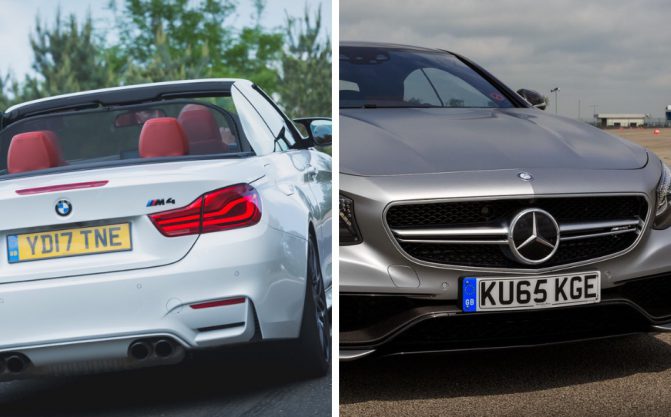
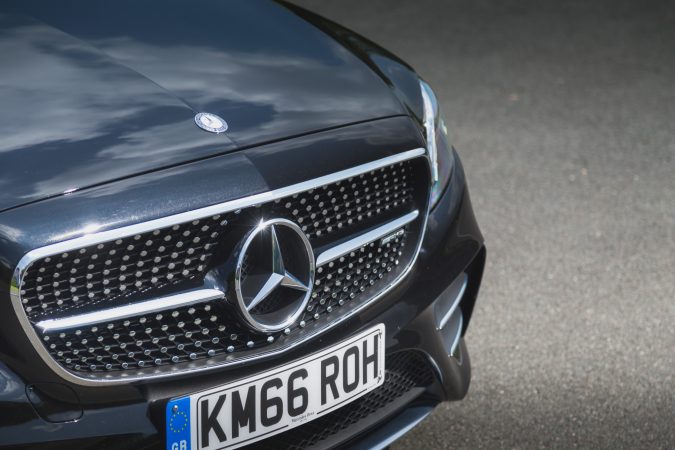
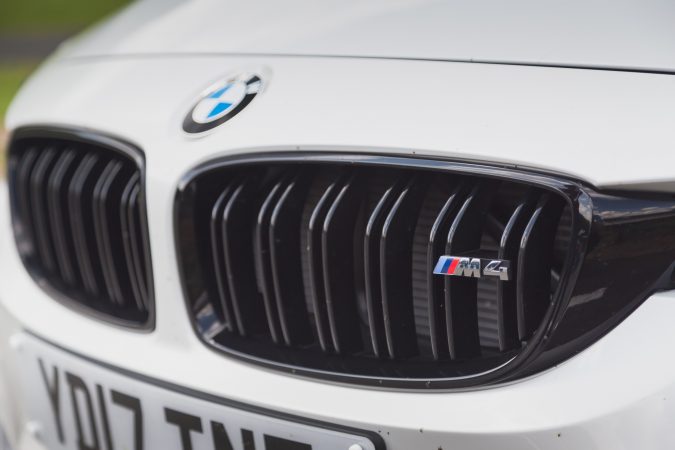
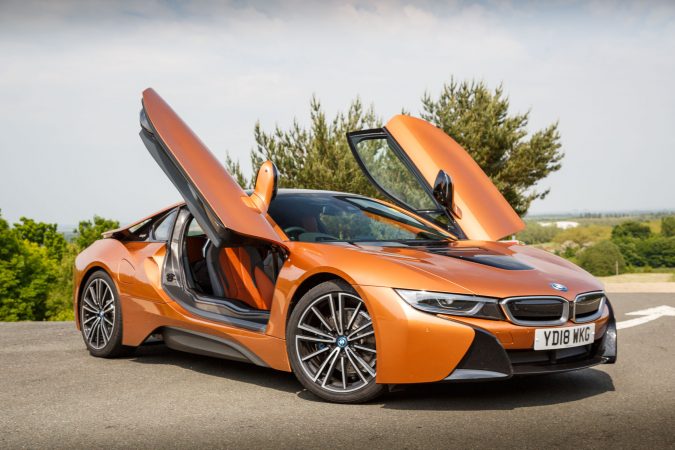
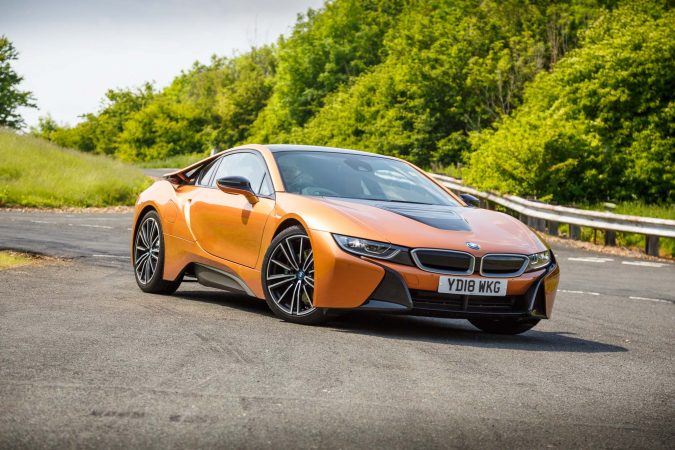
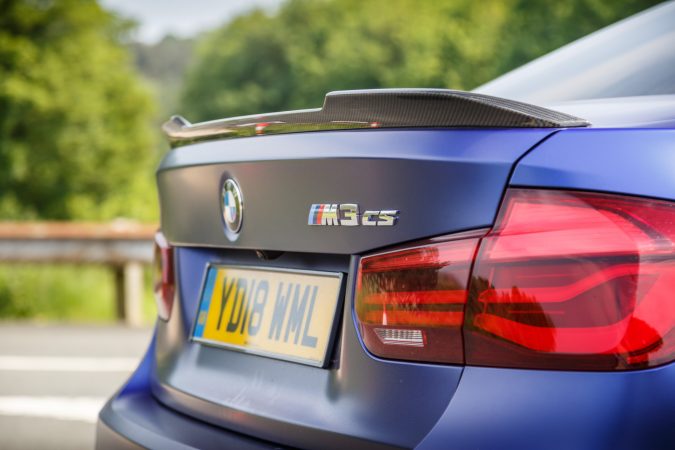
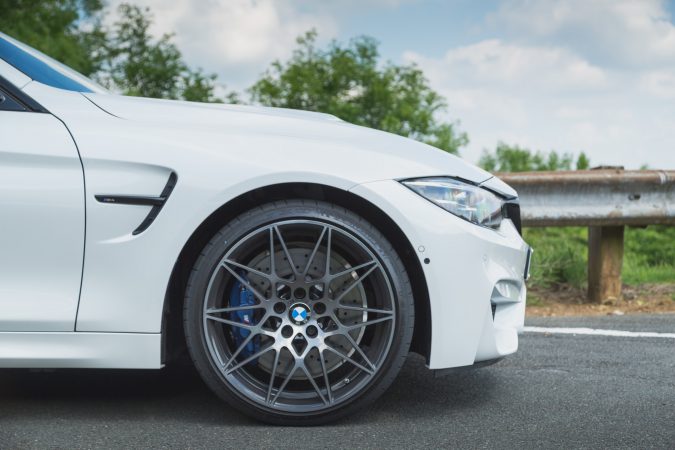
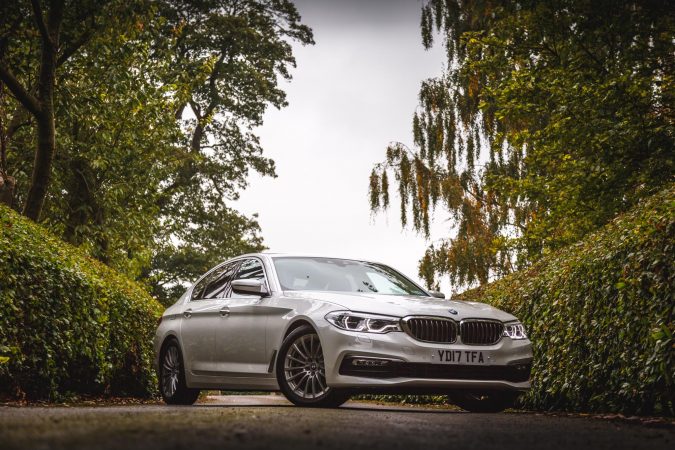
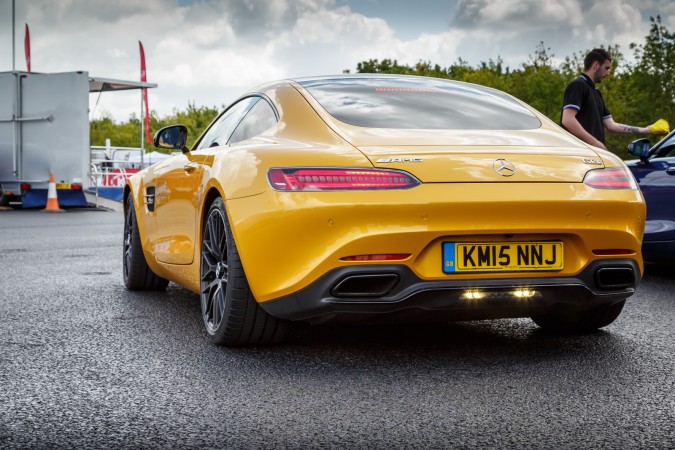
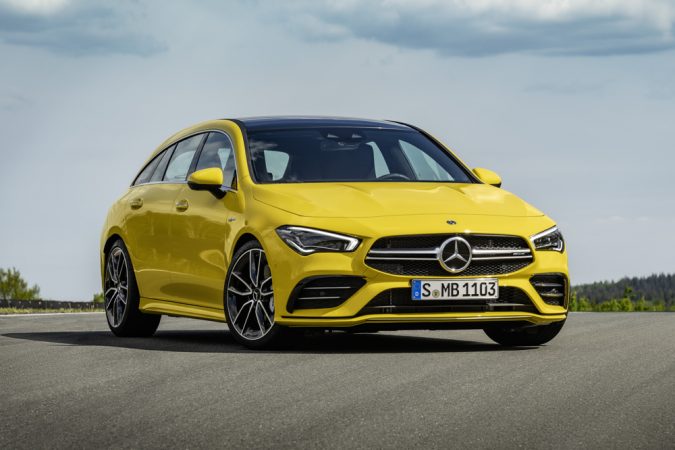
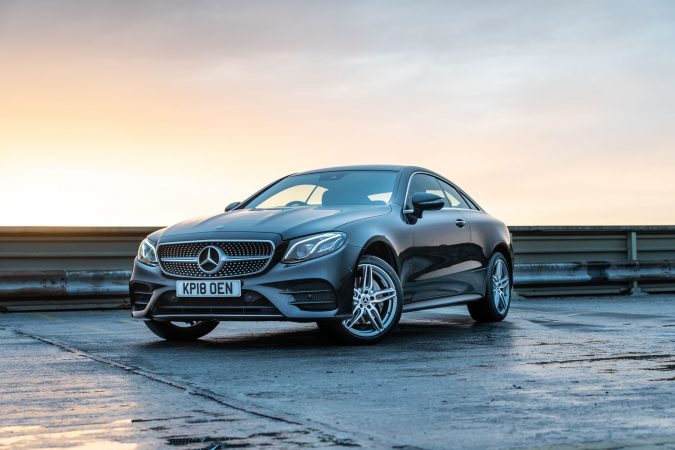
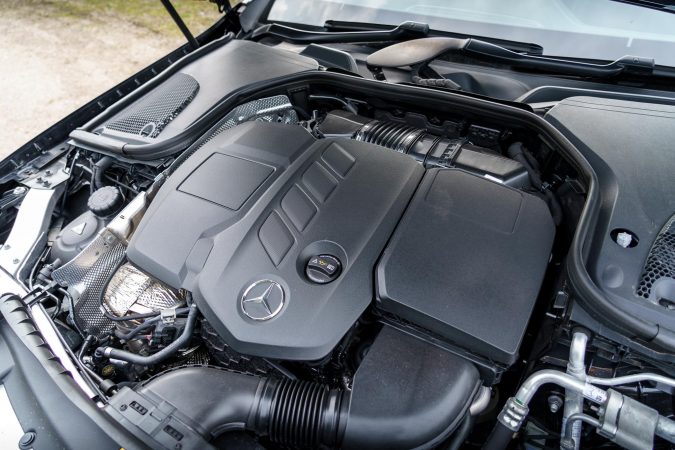
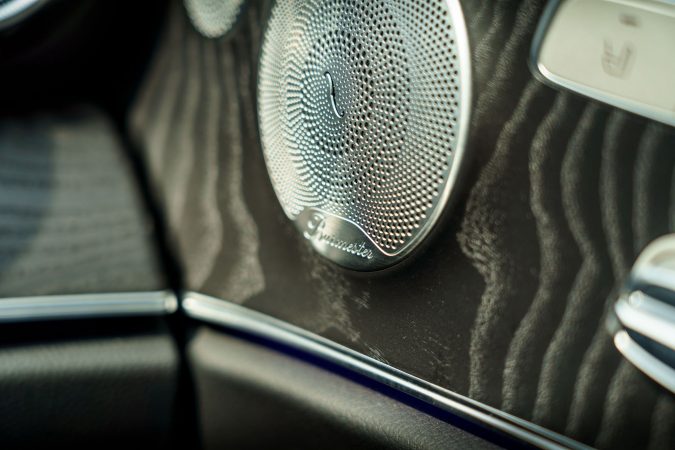
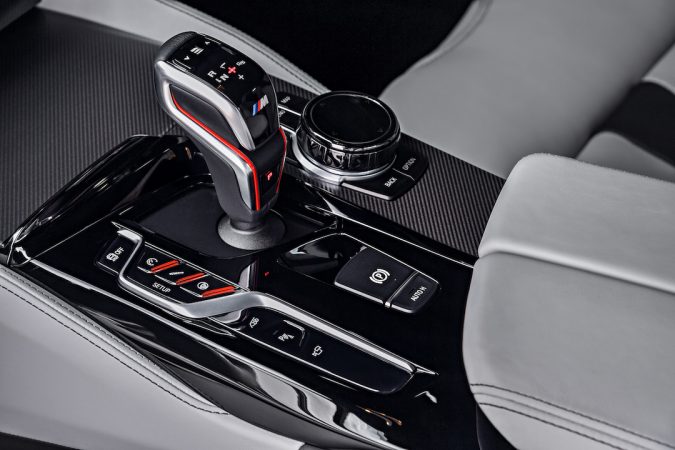
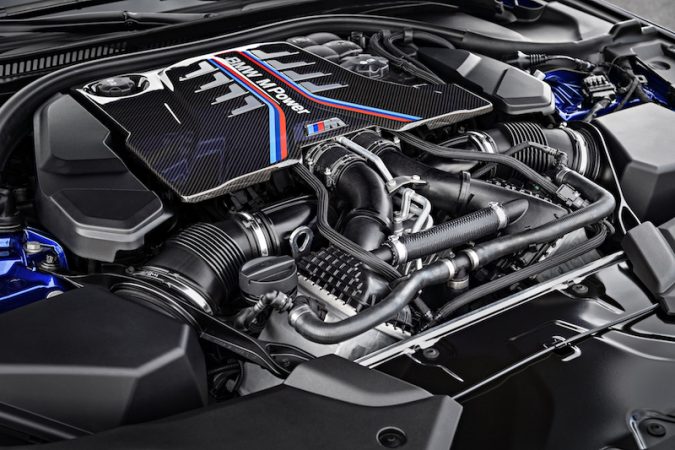
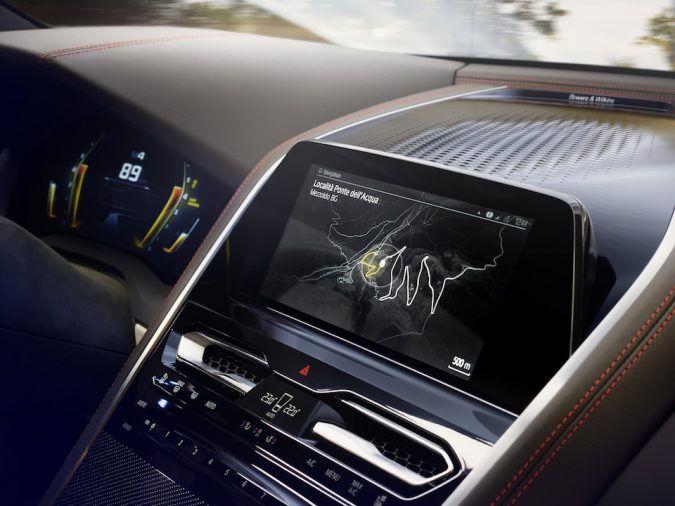
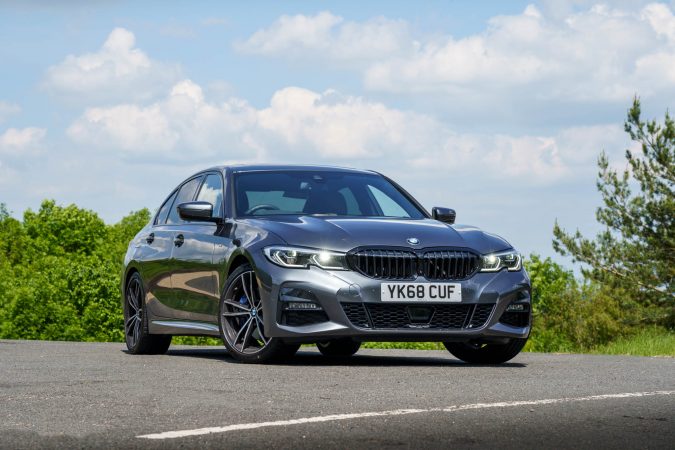
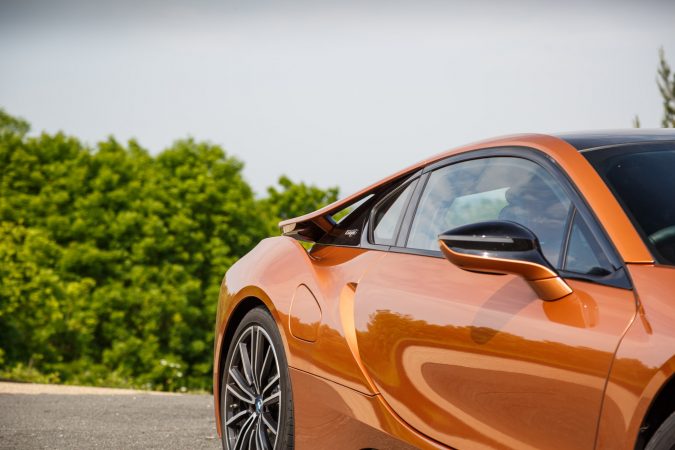
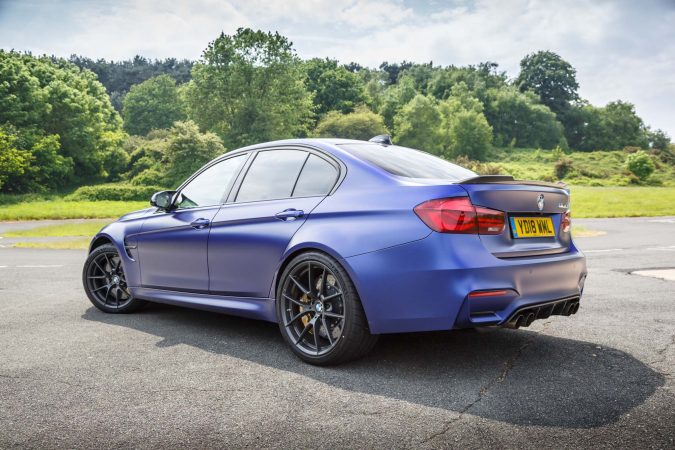
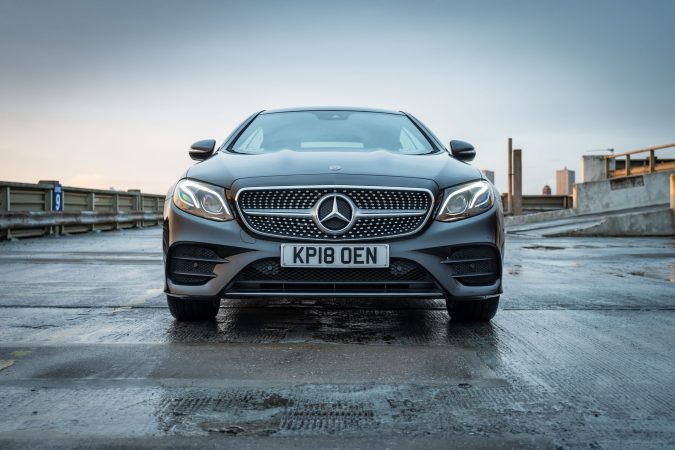
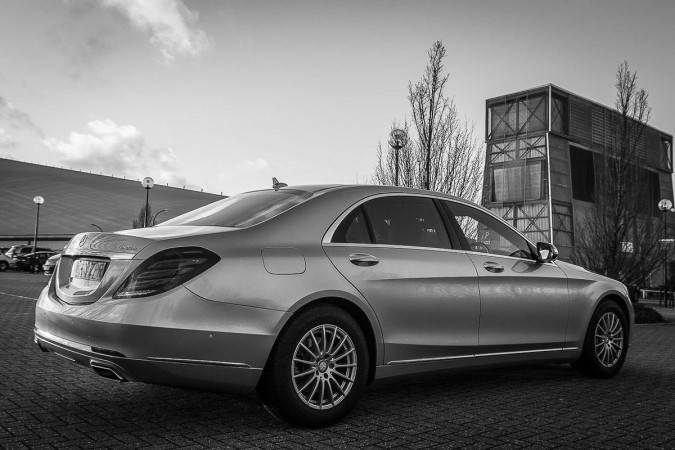
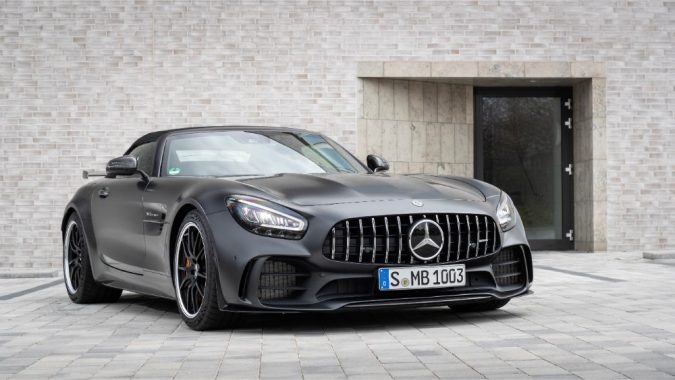
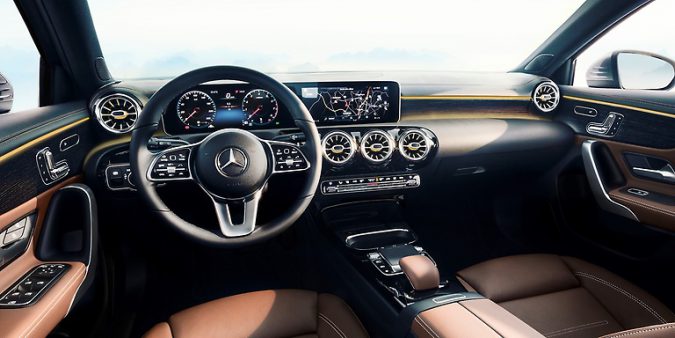
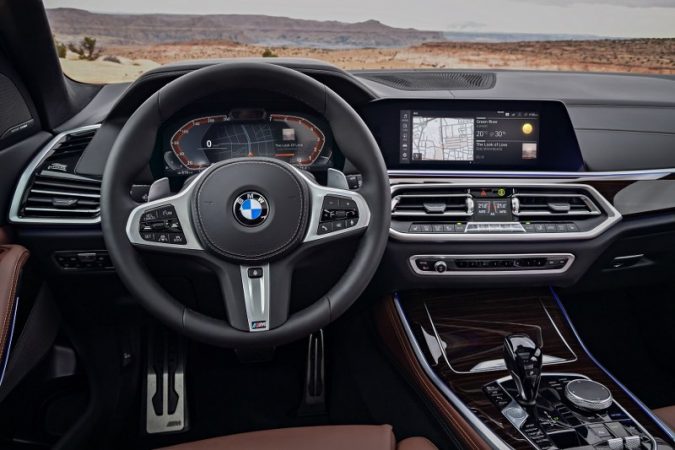
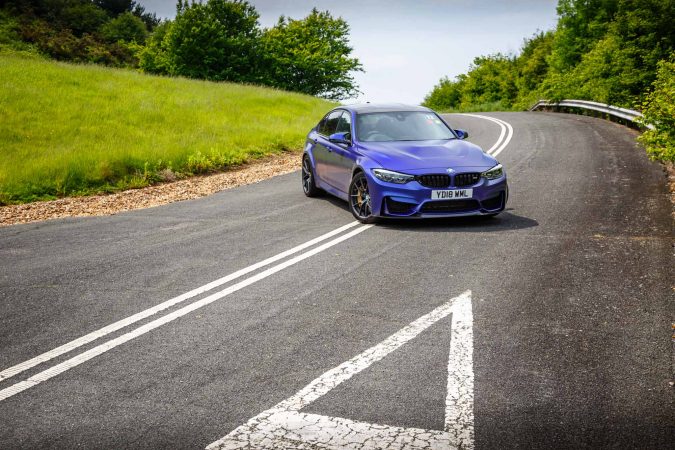
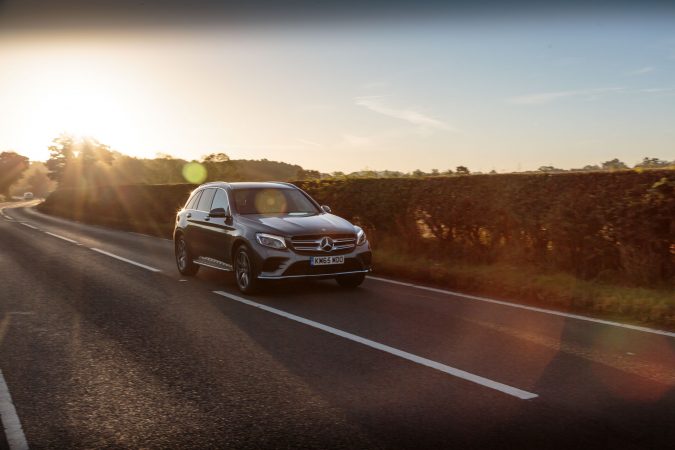
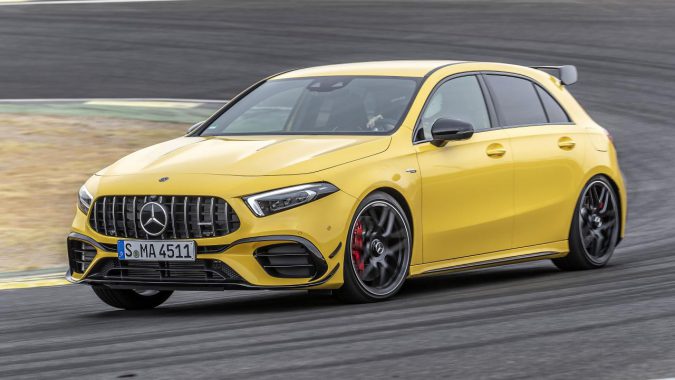
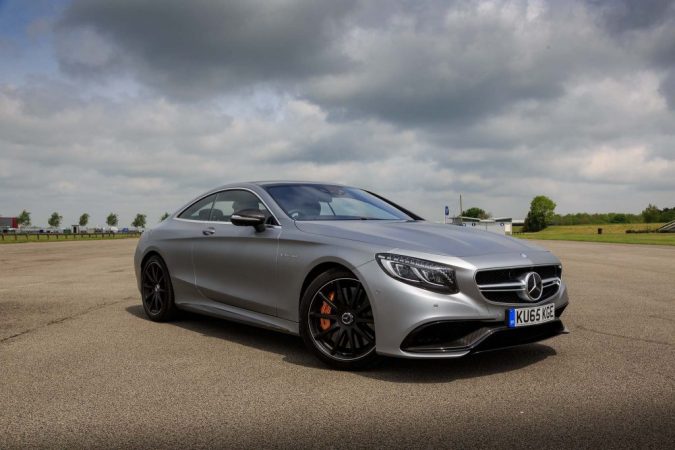
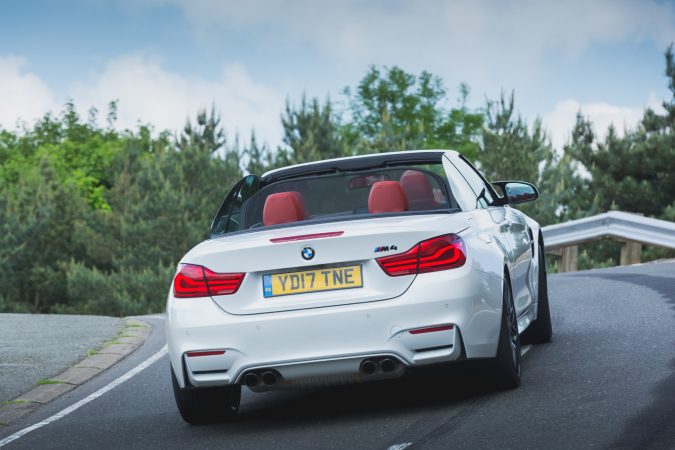
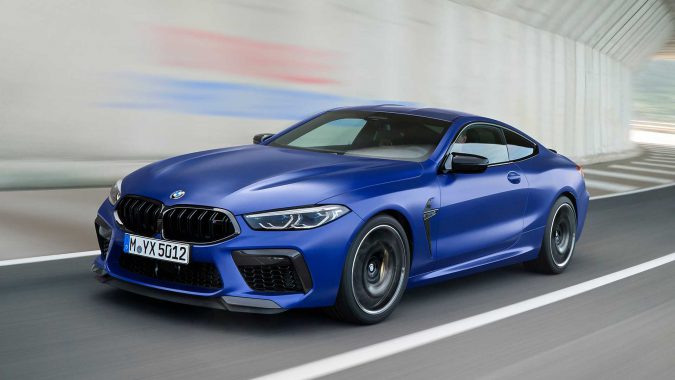
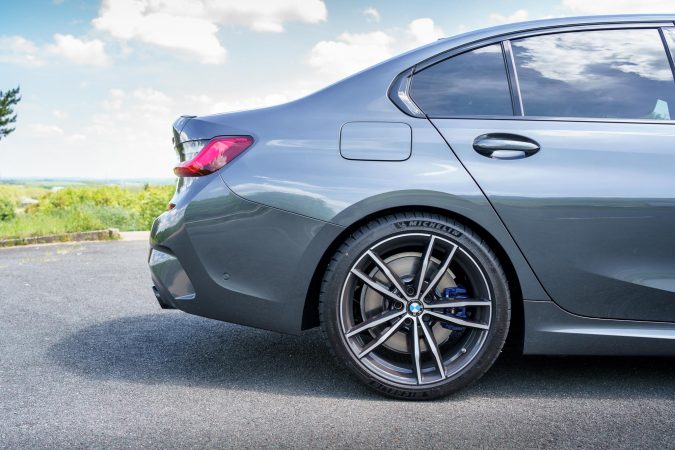
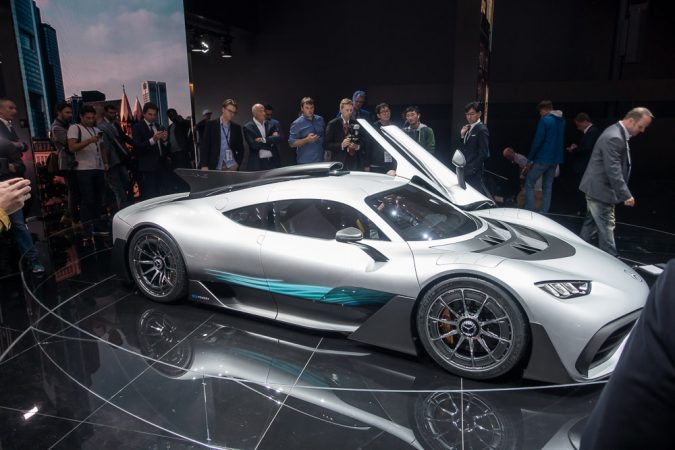
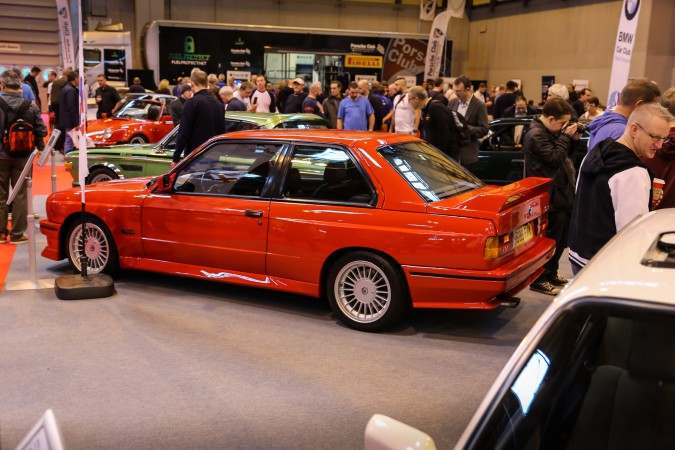
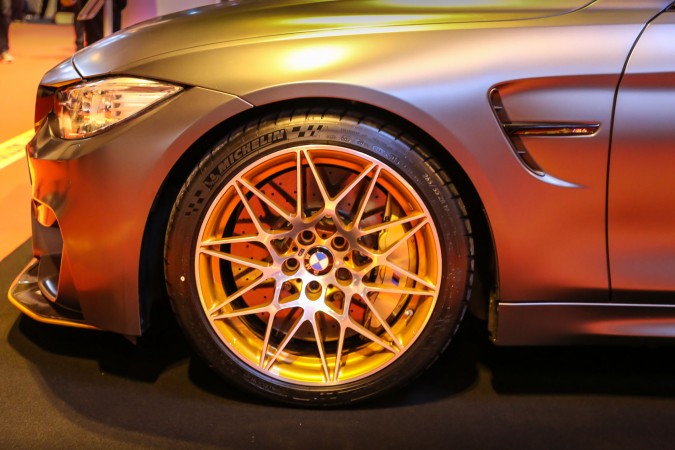
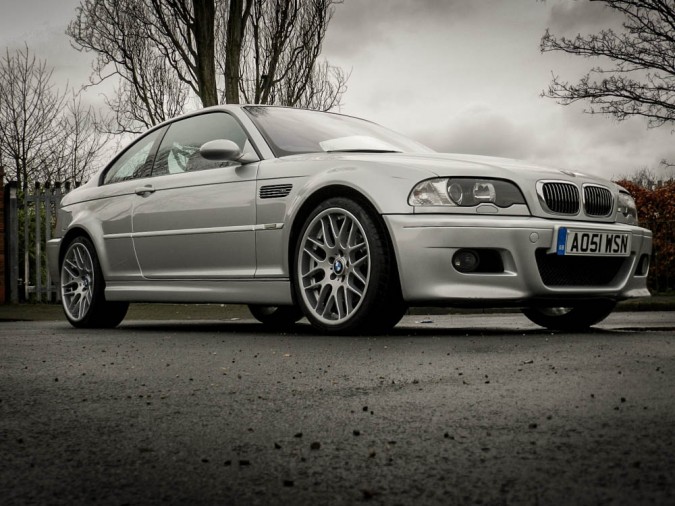
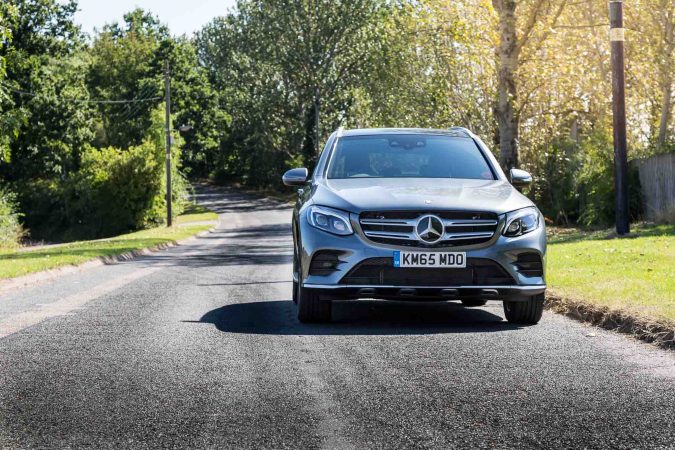
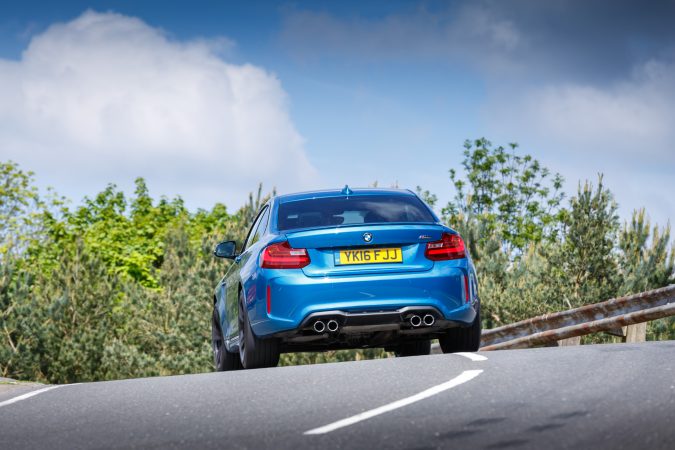
Mark Taylor BMW all day
Thomas Cheung lol 😂
Bmw all day
Mercedes
Always have been and always will be a BMW fan. I think they make the best cars out there. Simple as that.
Mercedes Any day of the week!
Love Mercs
This blog about BMW vs Mercedes – Which Brand Is Better For 2020?
has helped me a lot, is very well written.
Thanks for the comment, Cathey Wingerter!
We’ll always try to keep this article updated to reflect how these brands evolve, and it seems that in some metrics, the tables have turned in 2022, with BMW taking a lead in some regards. Still, it’s a pretty close fight!
Is it an updated article? please tell me as soon as possible.
This article has been updated a few times yes. Why do you ask?
I prefer BMW and always
This is an interesting one. I owned a BMW 3 series and my dad still has his C-Class. My car was more sporty and agile, but his is more luxurious and comfortable. I get the impression that I will almost grow out of BMWs and into Mercs so to speak. And I’m fine with that, as there are plenty of people who appreciate the choice.
Thanks for the comment, Kwesi Francois!
Aye, there’s certainly a car for everyone, as they say. My own experiences have also been the same, with more agility and athleticism from the Bimmers, but a touch more comfort and elegance in the Mercs.
I bought a 2019 BMW x3 30i. Test drove a Mercedes….it’s all about the ride and drive. Love my BMW!! Test drive both, you’ll go with BMW. So sleek.
mercedes is and will be my favorite, just my opinion, I respect bmw and mercedes both a lot
BMW FOR LIFE
Can anyone tell me ( who is struggling) between the two…how are Mer. SUV and BMW X5 compared on the maintenance side. I hear that the Mer. SUV cost more to repair?.. Is this true?
Thanks for the comment, Brooke!
Generally speaking, BMWs tend to cost slightly more to repair, maintain, and service compared to Mercedes. However, the differences are marginal, and it depends a lot on what components need repairing, and which dealers or workshops you’re heading to, among others. It’s safe to say that both would be rather costly to repair if anything goes wrong.
When I owned a Mercedes I had no repairs other than maintenance, I owned it for 10 years
I have the same experience for the same amount of time. I like some BMW products but some of my friends had issues that would linger on. I prefer Mercedes for the luxury but you can still get into sport in an S Class and that is all the power I need. I also have an AMG and have driven quite a few Mercedes and love the simple elegance of them as well!
Mercedes for Life!
I have the same experience for the same amount of time. I like some BMW products but some of my friends had issues that would linger on. I prefer Mercedes for the luxury but you can still get into sport in an S Class and that is all the power I need. I also have an AMG and have driven quite a few Mercedes and love the simple elegance of them as well!
Mercedes for Life!
Have 7 Mercs from 1979 to 2012 E class, S, ML, CLK etc, the best,never would change the brand.
Having been in business for decades, BMW and Mercedes have earned respect for greatness, masterful technical excellence, and consistent dedication to exceptional quality. As a result of their glorious background, both companies have gained a public image for providing a first-class riding pleasure. Their brands are becoming associated with a must-have for every prestige car enthusiast.
M power for life